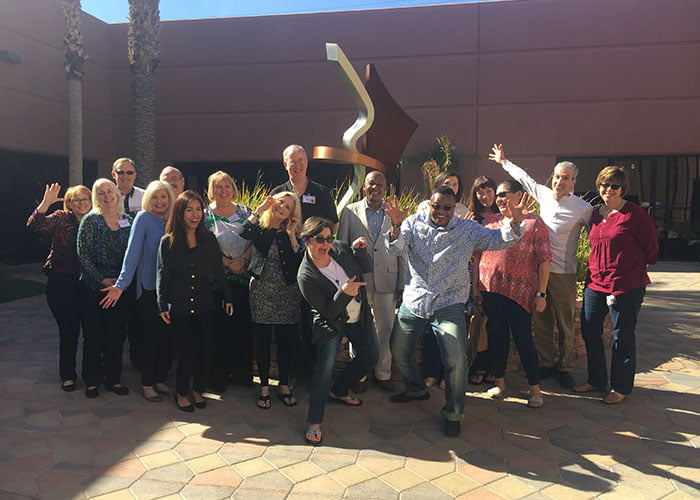What is this now, you ask?
Years ago during an AIFT©, one of the learners refused to reframe “sexual harassment” into an appreciative topic of inquiry. In this country, where it’s often said violence against women is the real pandemic, this reaction was understandable. August is Women’s Month in South Africa – it commemorates the march of 20,000 black women to the Union Buildings on 9 August 1956 to protest against the Apartheid government’s control over the movement of black women in urban areas. A fact which prompts us, this month, to shine the spotlight on Appreciative Inquiry and its appropriateness in working with people who have experienced trauma.
The AIFT learner raised an important challenge: with all its talk of positivity, is AI “soft on justice”? And the honest answer is; it probably depends. If it’s used as a covert strategy to avoid addressing the elephant in the room, that motivation will impact the result. If, on the other hand, it is used as a skillful way to become more present to what people are genuinely experiencing, helping them integrate those experiences as learning; it can be transformational.
As AI practitioners, checking our motivation for intrinsic bias is how we practice “integrity hygiene”.
 Checking our “blind spots” requires looking into variously positioned mirrors. In the reframing example above, the misalignment of intention and impact was exacerbated by disparate positionalities¹ of the learner and trainer: something that works brilliantly in one context may be highly problematic in another.
Checking our “blind spots” requires looking into variously positioned mirrors. In the reframing example above, the misalignment of intention and impact was exacerbated by disparate positionalities¹ of the learner and trainer: something that works brilliantly in one context may be highly problematic in another.
Having said this, clinical research into positive emotions shows an irrefutable correlation between our “positivity ratio”² and our ability to thrive. This is why – as evolving AI practitioners – we embrace complexity. We are able to bring our mindful presence to the trauma field of experience in a room, while simultaneously paying attention to the positive:
- To define what we need in the place of what we don’t want anymore
- To create psychological safety, enabling participants to share openly and relate authentically
- Sharing best experiences, proud moments and highlights can make us feel safe and energised. In this state, our habitual trauma responses – flight, fight, freeze, faint or fawn – are less likely to be triggered
- To actively notice “positive deviant”³ stories, which otherwise will be lost due to our habitual negativity bias (a neurological survival adaptation screening the landscape for potential threats)
- To see the potential and strengths of people who are often overlooked, and to promote the authentic inclusion of everyone’s voice and contribution
- To get to the heart of what matters most – our values – and to that which gives us the energy, resolve and faithfulness to address life’s hardest challenges
Trauma sensitivity and appreciative inquiry are two wings of one angel: each provides ballast for the other to stay the course when working within communities where people are hurting or angry. We can both be present to pain and inquire into positive moments that tell us more about the future we truly long to belong to. It starts with us.
¹ Positionality is the social and political context that creates our identity in terms of race, class, gender, sexuality and ability status. Positionality also describes how our identity influences, and potentially biases, our understanding of and outlook on the world. (dictionary.com)
² http://www.positivityratio.com/single.php
³ Positive deviance is an approach to behavioural and social change based on the observation that in any community there are people whose uncommon but successful behaviours or strategies enable them to find better solutions to a problem than their peers, despite facing similar challenges and having no extra resources or knowledge than their peers. These individuals are referred to as positive deviants. (Tuhus-Dubrow, R. The Power of Positive Deviants: A promising new tactic for changing communities from the inside. Boston Globe. November 29, 2009.)
Banner Photo by cottonbro on pexels.com


Add your comment now using your favorite social account or Click Here To Login
